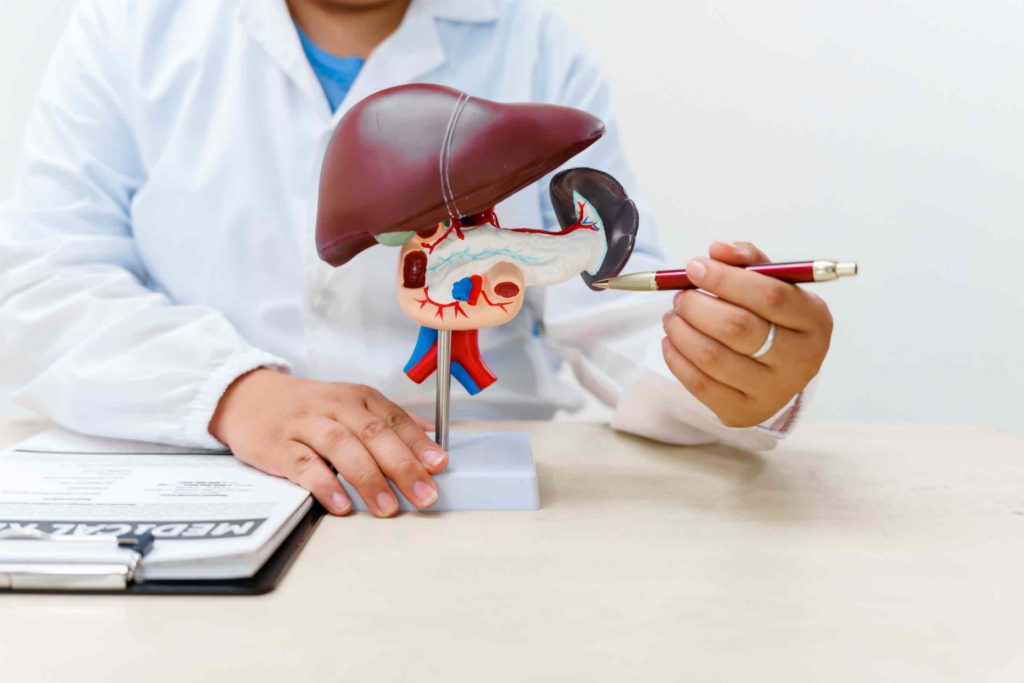Your liver plays a vital role in keeping your body healthy by filtering out toxins, helping digest food, and storing energy. However, when it stops functioning properly, it can cause various health problems. Identifying the early signs of liver dysfunction can be crucial to getting the right treatment and preventing long-term damage.
What are the Common Symptoms of Liver Dysfunction
There are several signs that might indicate liver dysfunction. While some symptoms can be mild at first, they often worsen over time if left untreated. Here are some of the early signs of liver dysfunction to watch out for:
Fatigue and Weakness
Feeling constantly tired or weak could be an early symptom of liver dysfunction, even if you are getting enough sleep.
Jaundice
This is one of the more obvious symptoms. It causes your skin and the whites of your eyes to turn yellow due to a buildup of bilirubin, a waste product in the blood.
Swollen Abdomen
Liver dysfunction can cause fluid retention, leading to a swollen belly (also called ascites).
Dark Urine and Pale Stools
If your urine becomes darker than usual or your stools look lighter, this could be a sign of liver dysfunction.
Loss of Appetite and Weight Loss
A declining appetite or unexplained weight loss can be linked to liver issues.
Nausea and Vomiting
Digestive problems such as nausea and vomiting may occur when the liver isn’t functioning well.
Itchy Skin
Persistent itching without a rash may also be related to liver problems.
Causes of Liver Dysfunction
Liver dysfunction can result from several factors, including:
- Excessive alcohol consumption: Drinking too much alcohol over time can damage liver cells, leading to cirrhosis or fatty liver disease.
- Obesity: Being overweight can increase the risk of non-alcoholic fatty liver disease (NAFLD).
- Infections: Viral infections like hepatitis B and C can cause liver inflammation and lead to dysfunction.
- Certain medications: Long-term use of some medications can affect liver health, so it’s important to be mindful of the side effects.
Diagnosing Liver Dysfunction
The best way to confirm whether you have liver dysfunction is through a liver function blood test. This test measures the levels of proteins and enzymes in your blood, giving doctors an idea of how well your liver is working.
Liver Dysfunction Diet and Treatment
Once diagnosed, it’s crucial to follow a liver-friendly diet to help reduce the strain on your liver. Here are some simple diet tips:
- Eat a balanced diet: Focus on whole grains, fruits, vegetables, and lean proteins.
- Avoid alcohol: Alcohol can cause further damage to your liver, so it’s essential to cut it out completely.
- Limit fatty foods: A high-fat diet can worsen liver conditions. Opt for healthy fats like those found in nuts, seeds, and olive oil.
Treatment for liver dysfunction depends on the cause and severity. It might include medication, lifestyle changes, or, in severe cases, a liver transplant. Early signs of liver dysfunction can be managed with the right care, making it crucial to act promptly.
Concerned About Your Liver? Get Expert Advice from Touchwood Pharmacy
If you are experiencing any of these liver dysfunction signs or have concerns about your liver health, don’t wait. Book an appointment for a professional liver function blood test with Touchwood Pharmacy. Our experienced team is here to provide you with accurate testing, expert advice, and personalised care. Whether you’re experiencing symptoms or just want to monitor your liver health, we’re committed to helping you get the answers you need. Contact us now to secure your appointment!



















